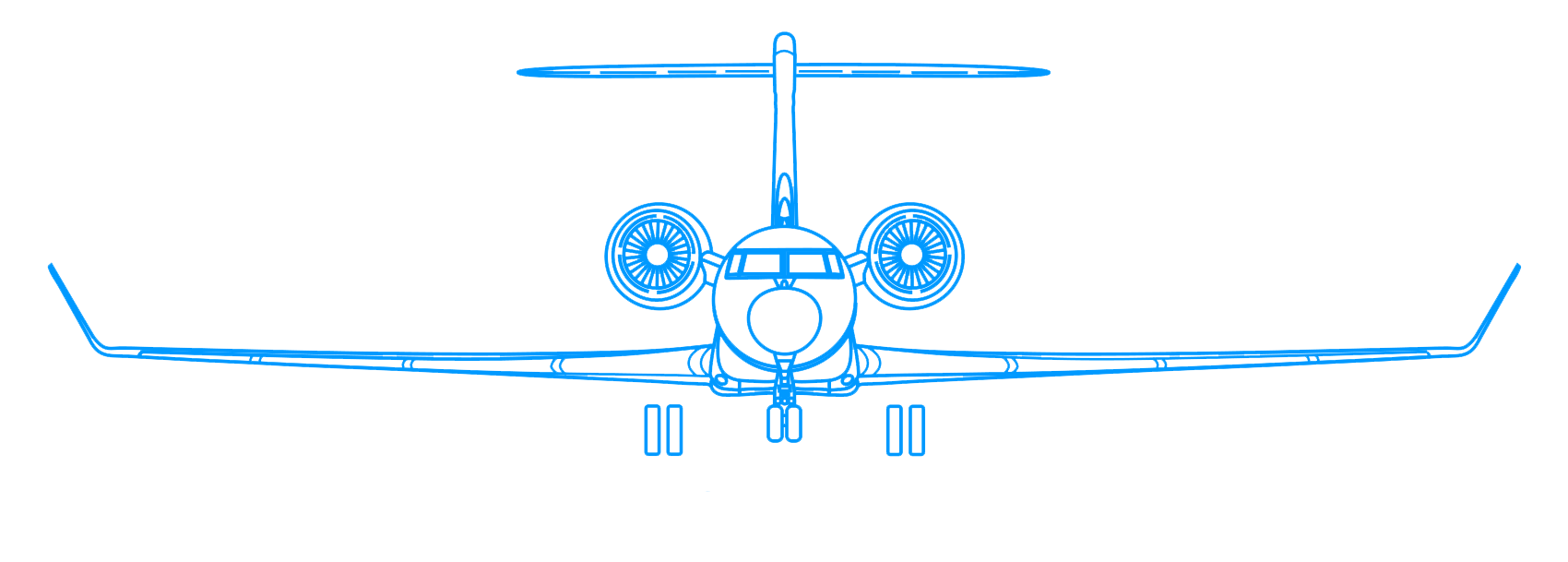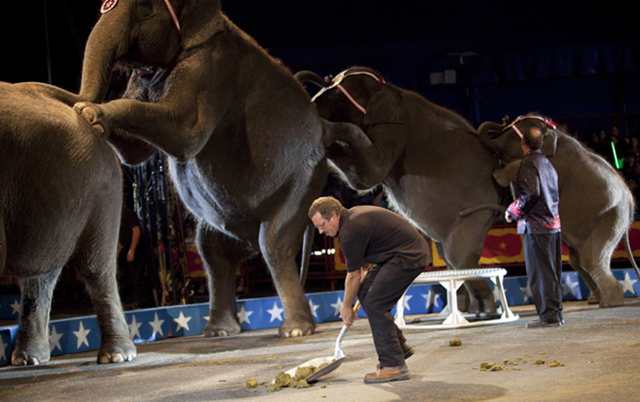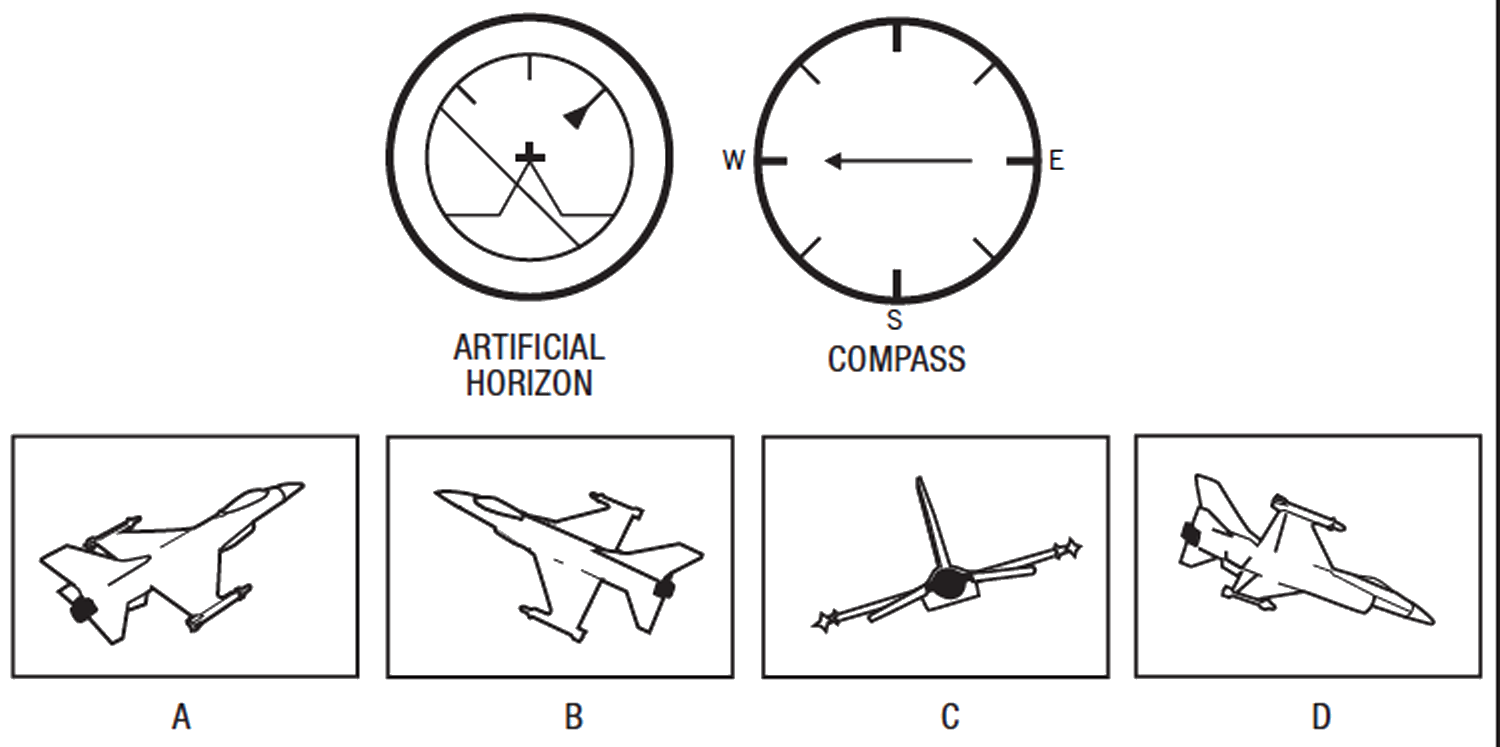Do you treat your occupation as a job, a career, or a calling? What is the difference? Does it matter? There is a difference and I think it matters. These questions aren't limited to aviation, but we who defy gravity for a living may have a unique perspective.
— James Albright

Updated:
2017-09-15
There is a big difference between a pilot and an aviator. One is a technician. The other is an artist in love with flight.”
— Elrey Borge Jeppesen
There is an old joke about a man who’d been taking care of elephants in a circus 25 years. He fed, bedded them down, did everything, then the number of elephants was doubled. After a month of this he was in a state of exhaustion. His wife said to him, "Why not give it up and get another job that’s easier?" He screamed, "What! And leave show business?"
There is a parallel in aviation. But, like show business, the meaning of the joke changes with your perspective. If you are in aviation you may pity those doing the grunt work. And by grunt work, I mean any level of aviation you might feel that is beneath your own. Or you may feel a kinship, knowing that you came up the same way. Or, like some, you may look upon all members of your profession as participating in something bigger than themselves.
Is this important? I think how you look upon the act of aviation can make a difference in your professionalism and how much effort you devote to being safe. So, yes, it is important.
1 — Job, career, or calling. What's the difference?

1
Job, career, or calling. What's the difference?
If you think of aviation as simply a way of paying the bills, then you have a job. If aviation is a way to further you to something bigger and better, you have a career. But if you consider aviation to be a primary focus of your life and if you were not making a living at it you would be doing it as a hobby, then you probably have a calling.
More recent research finds that most people approach their work in one of three ways: as a job, a career, or a calling. If you see your work as a job, you do it only for the money, you look at the clock frequently while dreaming about the weekend ahead, and you probably pursue hobbies, which satisfy your effectance needs more thoroughly than does your work. If you see your work as a career, you have larger goals of advancement, promotion, and prestige. The pursuit of these goals often energizes you, and you sometimes take work home with you because you want to get the job done properly. Yet, at times, you wonder why you work so hard. You might occasionally see your work as a rat race where people are competing for the sake of competing. If you see your work as a calling, however, you find your work intrinsically fulfilling-you are not doing it to achieve something else. You see your work as contributing to the greater good or as playing a role in some larger enterprise the worth of which seems obvious to you. You have frequent experiences of flow during the work day, and you neither look forward to "quitting time" nor feel the desire to shout, "Thank God it's Friday!" You would continue to work, perhaps even without pay, if you suddenly became very wealthy.
You might think that blue-collar workers have jobs, managers have careers, and the more respected professionals (doctors, scientists, clergy) have callings. Although there is some truth to that expectation, we can nonetheless paraphrase Marcus Aurelius and say, "Work itself is but what you deem it." Amy Wrzesniewski, a psychologist at New York University, finds all three orientations represented in almost every occupation she has examined. In a study of hospital workers, for example, she found that the janitors who cleaned bed pans and mopped up vomit-perhaps the lowest-ranking job in a hospital-sometimes saw themselves as part of a team whose goal was to heal people. They went beyond the minimum requirements of their job description,. for example, by trying to brighten up the rooms of very sick patients or anticipating the needs of the doctors and nurses rather than waiting for orders. In so doing, they increased their own occupational self-direction and created for themselves jobs that satisfied their effectance needs. Those janitors who worked this way saw their work as a calling and enjoyed it far more than those who saw it as a job.
Source: Haidt, pp. 221-222
2
The aviation advantage/disadvantage
There is a YouTube channel by a 30+ year British Airways captain, Why I quit my job as a British Airways Captain, that caught a number of comments that struck me more than the video itself. The video is good and the captain appears to be a professional who carefully decided to make a change in careers. But the comments at the time I viewed the video were from a number of others in the aviation business who couldn't believe it. "You ought to try this as a luggage loader!" We pilots definitely have the better end of the deal. If you are a pilot, you probably have all the right ingredients to make this your calling.
Plants thrive under particular conditions, and biologists can now tell us how sunlight and water get converted into plant growth. People thrive under particular conditions, and psychologists can now tell us how love and work get converted into happiness and a sense of meaning.
The man who found flow, Mihalyi Csikszentmihalyi, thinks big. Not content to study moments of flow (by beeping people several times a day), he wanted to know what role flow plays in life as a whole, particularly in the lives of creative people. So he turned to the experts: paragons of success in the arts and sciences. He and his students have interviewed hundreds of successful painters, dancers, poets, novelists, physicists, biologists, and psychologists-all people who seem to have crafted lives for themselves built around a consuming passion. These are admirable lives, desirable lives, the sort that many young people dream of having when they look to these people as role models. Csikszentmihalyi wanted to know how such lives happened. How does a person come to make such a commitment to a field and then become so extraordinarily creative?
Csikszentmihalyi and his students, particularly Jeanne Nakamura, have studied the end state of this deepening process and called it "vital engagement," which they define as "a relationship to the world that is characterized both by experiences of flow (enjoyed absorption) and by meaning (subjective significance)."
Vital engagement does not reside in the person or in the environment; it exists in the relationship between the two.
Getting the right relationship between you and your work is not entirely up to you. Some occupations come ready-made for vital engagement; others make it difficult. As market forces were reshaping many professions in the United States during the l 990s-medicine, journalism, science, education, and the arts-people in those fields began to complain that the quality of work and the quality of life were sometimes compromised by the relentless drive to increase profits.
Their conclusion is as profound as it is simple: It's a matter of alignment. When doing good (doing high-quality work that produces something of use to others) matches up with doing well (achieving wealth and professional advancement), a field is healthy.
Source: Haidt, pp. 223-225
The word "coherence" literally means holding or sticking together, but it is usually used to refer to a system, an idea, or a world-view whose parts fit together in a consistent and efficient way. Coherent things work well: A coherent world-view can explain almost anything, while an incoherent world-view is hobbled by internal contradictions. A coherent profession, such as genetics, can get on with the business of genetics, while an incoherent profession, like journalism, spends a lot of time on self-analysis and self-criticism.33 Most people know there's a problem, but they can't agree on what to do about it.
To understand ourselves fully we must study all three levels-physical, psychological, and sociocultural.
Here is one of the most profound ideas to come from the ongoing synthesis: People gain a sense of meaning when their lives cohere across the three levels of their existence.
You can't just invent a good ritual through reasoning about symbolism. You need a tradition within which the symbols are embedded, and you need to invoke bodily feelings that have some appropriate associations. Then you need a community to endorse and practice it over time. To the extent that a community has many rituals that cohere across the three levels, people in the community are likely to feel themselves connected to the community and its traditions. If the community also offers guidance on how to live and what is of value, then people are unlikely to wonder about the question of purpose within life. Meaning and purpose simply emerge from the coherence, and people can get on with the business of living. But conflict, paralysis, and anomie are likely when a community fails to provide coherence, gr, worse, when its practices contradict people's gut feelings or their shared mythology and ideology.
Source: Haidt, pp. 226-229
3
Finding your calling
I took the Air Force Officer Qualifying Test (AFOQT) in 1972 while the Vietnam War was coming to an end and the draft was still going on but about to end. Part of the process involved taking this test which included a section that showed aircraft instruments and aircraft. There was no explanation but it seemed obvious you had to match the instruments with the aircraft. There were questions about navigation too. Then there were sections which mimicked what you might see on any college aptitude test. I got 98% on the pilot section, even though I had never piloted an airplane of any kind. I got 95% on the navigation section, and then lower but passing scores on everything else.
The 98% pilot score meant I would start AFROTC as a cadet with a slot to pilot training. I met other pilot candidates with scores in the lower nineties and upper eighties. And there was also a navigator candidate who scored the same as me in the pilot test but got 100% in the navigator test. He desperately wanted to be a pilot, but it appeared he was too smart to be a pilot.
That navigator went further than me in his Air Force career and did well afterwards too. But it always struck me as odd that his life and mine were determined by something so capricious. A further irony is that he knew what he wanted to do and I did not. So how do you know you are doing what you are meant to do?
The optimistic conclusion coming out of research in positive psychology is that most people can get more satisfaction from their work. The first step is to know your strengths. Take the strengths test and then choose work that allows you to use your strengths every day, thereby giving yourself at least scattered moments of flow. If you are stuck in a job that doesn't match your strengths, recast and reframe your job so that it does. Maybe you'll have to do some extra work for a while, like the hospital janitors who were acting on strengths of kindness, loving, emotional intelligence, or citizenship. If you can engage your strengths, you'll find more gratification in work; if you find gratification, you'll shift into a more positive, approach-oriented mindset; and in such a mindset it will be easier for you to see the bigger picture28-the contribution you are making to a larger enterprise within which your job might turn into a calling.
Work at its best, then, is about connection, engagement, and commitment. As the poet Kahlil Gibran said, "Work is love made visible." Echoing Tolstoy, he gave examples of work done with love:
It is to build a house with affection,
even as if your beloved were to dwell in that house.
It is to sow seeds with tenderness and reap the harvest with joy,
even as if your beloved were to eat the fruit.
Love and work are crucial for human happiness because, when done well, they draw us out of ourselves and into connection with people and projects beyond ourselves. Happiness comes from getting these connections right. Happiness comes not just from within, as Buddha and Epictetus supposed, or even from a combination of internal and external factors (as I suggested as a temporary fix at the end of chapter 5). The correct version of the happiness hypothesis, as I'll illustrate below, is that happiness comes from between.
Source: Haidt, pp. 222-223
Jonathan Haidt mentions a "strengths test" to figure all of this out. What he is referring to can be found here: https://www.authentichappiness.sas.upenn.edu/. Look for the pull down menu under "Questionnaires" and click on "Get Started."
References
(Source material)
Haidt, Jonathan, The Happiness Hypothesis, Basic Books, New York, 2006.



